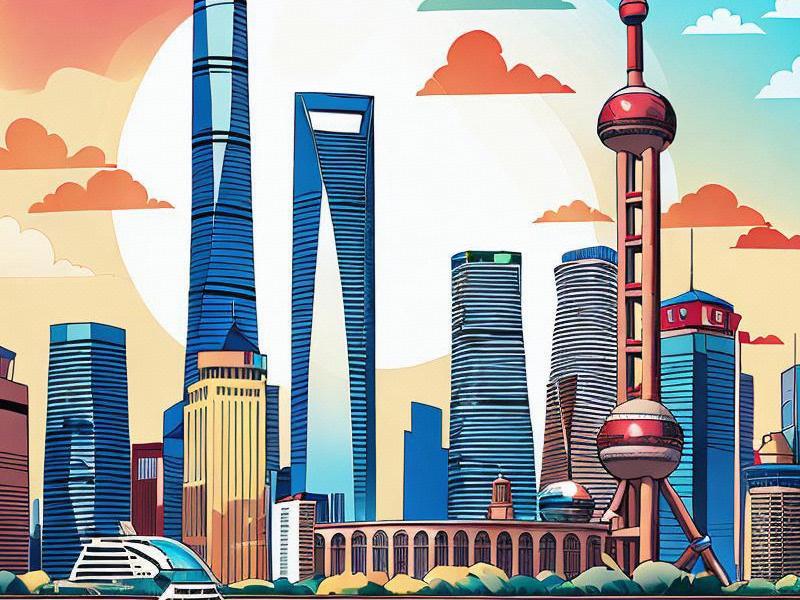This article delves into the vibrant city of Shanghai, exploring its unique blend of traditional Chinese culture and cutting-edge modernity. As one of the world's most dynamic cities, Shanghai stands as a testament to China's rapid urbanization and economic transformation.

Shanghai, often referred to as the "Pearl of the Orient," is a city that seamlessly blends the old with the new. Located on the eastern coast of China, it is the largest city in the country and a significant global economic hub. With its stunning skyline, rich history, and vibrant culture, Shanghai offers a fascinating glimpse into the future while honoring its past.
The city's history dates back thousands of years, but it was during the 19th century that Shanghai began to transform into a major international port. The opening of treaty ports after the First Opium War allowed foreign powers to establish concessions in the city, leading to a period of rapid urbanization and cultural exchange. This historical legacy is still evident in the city's architecture, with landmarks such as the Bund and the French Concession showcasing a mix of colonial-era buildings and modern skyscrapers.
One of the most iconic symbols of Shanghai is the Bund, a waterfront area that offers breathtaking views of the futuristic skyline across the Huangpu River. The Bund is lined with historic buildings that once housed banks, trading companies, and consulates, serving as a reminder of Shanghai's role as a global financial center in the early 20th century. Today, it is a popular tourist destination, where visitors can stroll along the promenade, enjoy the night views illuminated by colorful lights, and take in the unique blend of old and new.
In contrast to the historic Bund, Pudong represents Shanghai's modern face. Once a rural area, Pudong has been transformed into a symbol of China's economic prowess. The Lujiazui financial district, home to some of the world's tallest buildings, including the iconic Oriental Pearl Tower and the Shanghai Tower, is a testament to the city's rapid development. Pudong's skyline is a visual representation of China's rise as a global economic power and its commitment to innovation and modernization.
爱上海论坛
Shanghai's economic success is not limited to its financial district. The city is a major hub for trade, manufacturing, and technology. It is home to the world's busiest container port, handling billions of tons of cargo annually. Shanghai's advanced infrastructure, including its extensive metro system, efficient public transportation, and state-of-the-art airports, makes it a gateway for international business and tourism.
Culturally, Shanghai is a melting pot of influences. The city has a rich artistic heritage, with traditional Chinese art forms such as calligraphy, painting, and opera coexisting alongside modern cultural expressions. The Shanghai Museum, located in People's Square, is renowned for its extensive collection of ancient Chinese art, attracting millions of visitors each year. The city also hosts numerous cultural festivals, such as the Shanghai International Film Festival and the Shanghai International Art Festival, which showcase both domestic and international talent.
The culinary scene in Shanghai is another highlight, offering a unique blend of flavors that reflect the city's diverse influences. From traditional Shanghainese dishes like xiaolongbao (soup dumplings) and shengjianbao (pan-fried buns) to international cuisines, the city's food culture is as dynamic as its urban landscape. The bustling night markets and elegant restaurants provide a taste of the city's vibrant lifestyle.
上海龙凤419
Education and innovation are key drivers of Shanghai's development. The city is home to some of China's top universities, including Fudan University and Tongji University, which attract students from around the world. Shanghai's commitment to research and development is evident in its numerous high-tech parks and innovation hubs, such as Zhangjiang Hi-Tech Park, which fosters advancements in biotechnology, information technology, and other cutting-edge fields.
Despite its rapid modernization, Shanghai remains committed to preserving its cultural heritage. Efforts have been made to protect historic neighborhoods and restore old buildings, ensuring that the city's history is not lost in the pursuit of progress. Initiatives such as the Shanghai Old City Conservation Zone and the Yuyuan Garden restoration project demonstrate the city's dedication to balancing development with preservation.
Shanghai's global influence extends beyond its economic and cultural achievements. The city plays a crucial role in international diplomacy and cooperation. As a member of the World Expo Organizing Committee, Shanghai successfully hosted the 2010 World Expo, attracting millions of visitors from around the world. The event showcased the city's ability to organize large-scale international events and highlighted its commitment to sustainable development and global collaboration.
上海贵族宝贝sh1314
In recent years, Shanghai has also emerged as a leader in environmental sustainability. The city has implemented various initiatives to reduce pollution, promote green energy, and improve urban living conditions. The construction of green spaces, such as the Century Park and the Xintiandi Greenway, provides residents and visitors with opportunities to enjoy nature amidst the urban environment. Shanghai's efforts to combat climate change and promote sustainable urban development serve as a model for other cities worldwide.
As Shanghai continues to grow and evolve, it faces challenges such as managing urban sprawl, addressing social inequalities, and ensuring sustainable development. However, the city's resilience and adaptability have allowed it to overcome obstacles and maintain its position as a global leader. Shanghai's ability to balance tradition and modernity, economic growth and environmental sustainability, and local identity and global influence makes it a unique and dynamic city.
In conclusion, Shanghai is a city that embodies the spirit of China's transformation and its aspirations for the future. Its rich history, vibrant culture, economic prowess, and commitment to innovation make it a global icon. As Shanghai continues to shape the future, it serves as a beacon of what is possible when tradition and modernity coexist harmoniously. The dynamic city of Shanghai is not just a place; it is a symbol of China's journey towards becoming a global superpower.